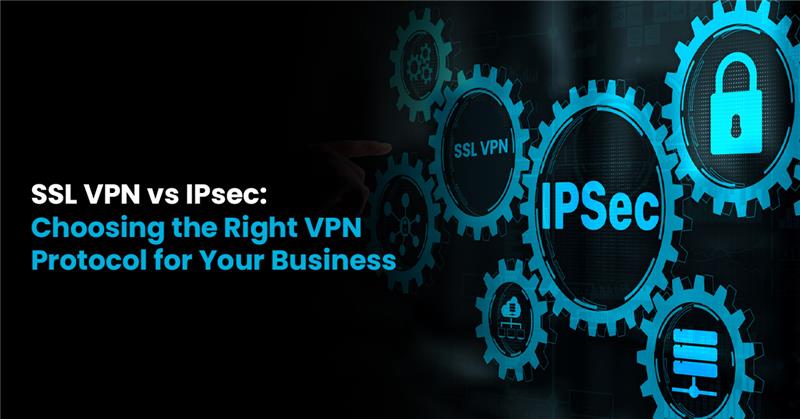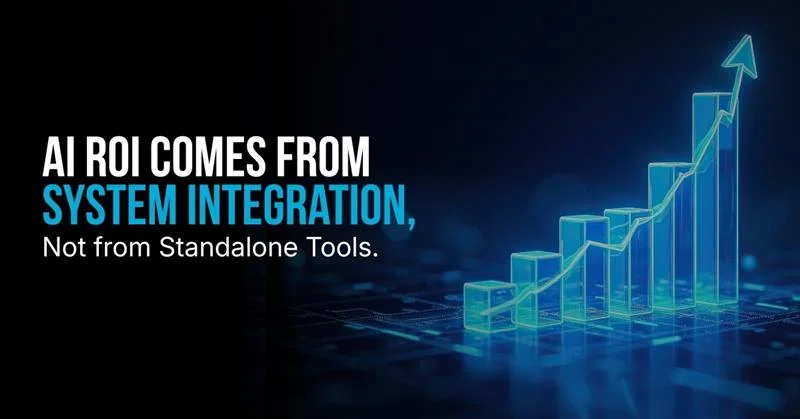When cybersecurity threats loom over every business decision, choosing between SSL VPN vs IPSec isn’t just a technical choice—it’s a strategic one that can make or break your company’s security posture. With remote work becoming the norm and VPN adoption accelerating rapidly, the pressure to make the right choice has never been higher.
But here’s the million-dollar question: which protocol actually fits your business needs? Let’s cut through the technical jargon and explore the SSL VPN vs IPSec debate in a way that makes sense for your bottom line.
What is SSL VPN and how does it work?
SSL VPN technology operates at the application layer, providing secure access through standard web browsers without requiring specialized client software on user devices.
Understanding secure socket layer VPN technology
What is SSL VPN exactly? A secure socket layer VPN creates encrypted tunnels between remote users and corporate networks using standard SSL/TLS protocols. Think of it like your online banking security—SSL TLS VPN extends this familiar encryption to corporate network access.
Key benefits of secure socket layer VPN:
- Zero-client deployment: No software installation required
- Universal compatibility: Works across all devices with web browsers
- Granular access control: Restrict access to specific applications
- Cost-effective scaling: Easier management for remote workforces
What is SSL VPN used for in business?
SSL TLS VPN shines when providing secure access to specific applications rather than full network connectivity. It’s perfect for remote workforce management, BYOD environments, and contractor access scenarios.
What is IPSec VPN and its core components?
IPSec VPN operates at the network layer, providing comprehensive encryption for all network traffic between connected endpoints.
Understanding what is IP sec protocol
What is IP sec? Internet Protocol Security (IPSec) is a protocol suite that secures IP communications by authenticating and encrypting each packet. What is the IPSec VPNIts approach focuses on protecting entire network connections rather than individual applications.
IPSec creates secure tunnels using:
- Tunnel mode: Encrypts the entire IP packet
- Transport mode: Encrypts only the payload
- Authentication Header (AH): Provides data integrity
- Encapsulating Security Payload (ESP): Offers confidentiality and authentication
How IPSec tunnels secure network traffic
IPSec tunnels establish secure connections between networks, making them ideal for site-to-site connectivity. When both endpoints authenticate and establish security parameters, all traffic gets encrypted before transmission through the public internet.
This makes tunnel IPSec particularly valuable for branch office connectivity, data center integration, and partner network access.
SSL VPN vs IPSec: Key differences explained
The SSL VPN vs IPSec debate centers on fundamental architectural differences. While both provide secure connectivity, they approach security from different angles.
Which VPN tunnel style routes only certain types of traffic?
When considering which VPN tunnel style routes only certain types of traffic, SSL TLS VPN takes the lead. Secure socket layer VPN can selectively route only certain types of traffic based on application requirements, while IPSec typically handles all network traffic.
This selective routing makes SSL TLS VPN ideal for application-specific access, bandwidth optimization, and reduced infrastructure load.
IPSec vs TLS: Security layer comparison
The IPSec vs TLS debate highlights fundamental differences in security implementation. IPSec vs TLS comparison reveals that IPSec operates at the network layer, while TLS functions at the application layer.
Network Layer Security (IPSec):
- Protects all network traffic regardless of application
- Requires more complex configuration
- Offers robust security for site-to-site connections
Application Layer Security (TLS):
- Secures specific applications and web services
- Easier to implement and manage
- Better suited for remote user access
When evaluating IPSec vs TLS for your business, consider that IPSec vs TLS performance characteristics differ significantly, with TLS generally offering better performance for web-based applications.
How many types of VPNs should your business consider?
The question of how many typetypes of VPNs your business needs depends on your specific requirements. In the SSL VPN vs IPSec context, most organizations benefit from understanding both approaches.
SSL TLS VPN for remote access
SSL TLS VPN excels in remote access scenarios where flexibility and ease of use matter most. With organizations increasingly prioritizing user-friendly solutions, SSL VPN technology continues to gain market traction.
Key advantages:
- Clientless connectivity: Works through standard web browsers
- Rapid deployment: No client software installation required
- Universal device support: Compatible with any device having a web browser
- Cost-effective scaling: Lower total cost of ownership
Tunnel IPSec for site-to-site connections
Tunnel IPSec remains the gold standard for connecting multiple office locations securely. When comparing SSL VPN vs IPSec for site-to-site connectivity, tunnel IPSec offers superior performance for network-to-network connections.
Benefits:
- Comprehensive protection: Encrypts all network traffic between sites
- High performance: Optimized for handling large volumes of data
- Transparent operation: Applications work without modification
- Robust security: Military-grade encryption for sensitive data
When to choose SSL VPN vs IPSec for your business
Making the right choice in the SSL VPN vs IPSec debate requires understanding your specific business context.
Choose SSL TLS VPN when:
- You need remote access to web-based applications
- Your workforce uses various devices (BYOD environment)
- You want quick deployment without complex client configuration
- You need granular access control for specific applications
Choose tunnel IPSec when:
- You’re connecting multiple office locations
- You need comprehensive network-level security
- You’re handling sensitive data requiring maximum security
- You need to support legacy applications
Consider a hybrid approach when:
- You have both remote users and site-to-site requirements
- Different departments have varying security needs
- You’re planning for future growth and scalability
Implementation challenges and best practices
Both SSL VPN vs IPSec implementations come with unique challenges.
Common SSL TLS VPN challenges:
- Browser compatibility issues with older systems
- Limited support for non-web applications
- Security concerns with browser-based access
Typical tunnel IPSec challenges:
- Complex configuration requirements
- Client software deployment and maintenance
- Higher infrastructure costs for small deployments
Best practices for both approaches:
- Implement strong authentication mechanisms
- Regular security audits and updates
- Comprehensive user training programs
- Robust monitoring and logging systems
Statistical insights: VPN market trends
The numbers tell a compelling story about the SSL VPN vs IPSec market dynamics. According to Grand View Research, the global VPN market was valued at $25.41 billion in 2019 and is projected to reach $75.59 billion by 2027, growing at a CAGR of 14.7%. This explosive growth underscores the critical importance of choosing the right VPN protocol for your business.
Meanwhile, a recent Forbes survey found that 72% of users run VPN software for encrypted browsing sessions, highlighting the preference for user-friendly solutions that SSL TLS VPN provides.
These trends suggest that while the SSL VPN vs IPSec debate continues, businesses are increasingly favoring solutions that balance security with usability—a sweet spot where secure socket layer VPN technologies excel.
Conclusion: Expert VPN management with IT By Design
Navigating the SSL VPN vs IPSec decision doesn’t have to be overwhelming. Whether you choose secure socket layer VPN for its simplicity or tunnel IPSec for its comprehensive security, the key is having expert support for implementation and management.
Don’t let VPN complexity slow down your business growth.
IT By Design’s Network Operations Center (NOC) provides 24/7 monitoring, expert configuration, and seamless management of both SSL and IPSec VPN solutions. Our certified network engineers will help you implement the right VPN protocol strategy for your specific needs, ensuring optimal security and performance.
Contact us today to transform your VPN infrastructure into a competitive advantage.








